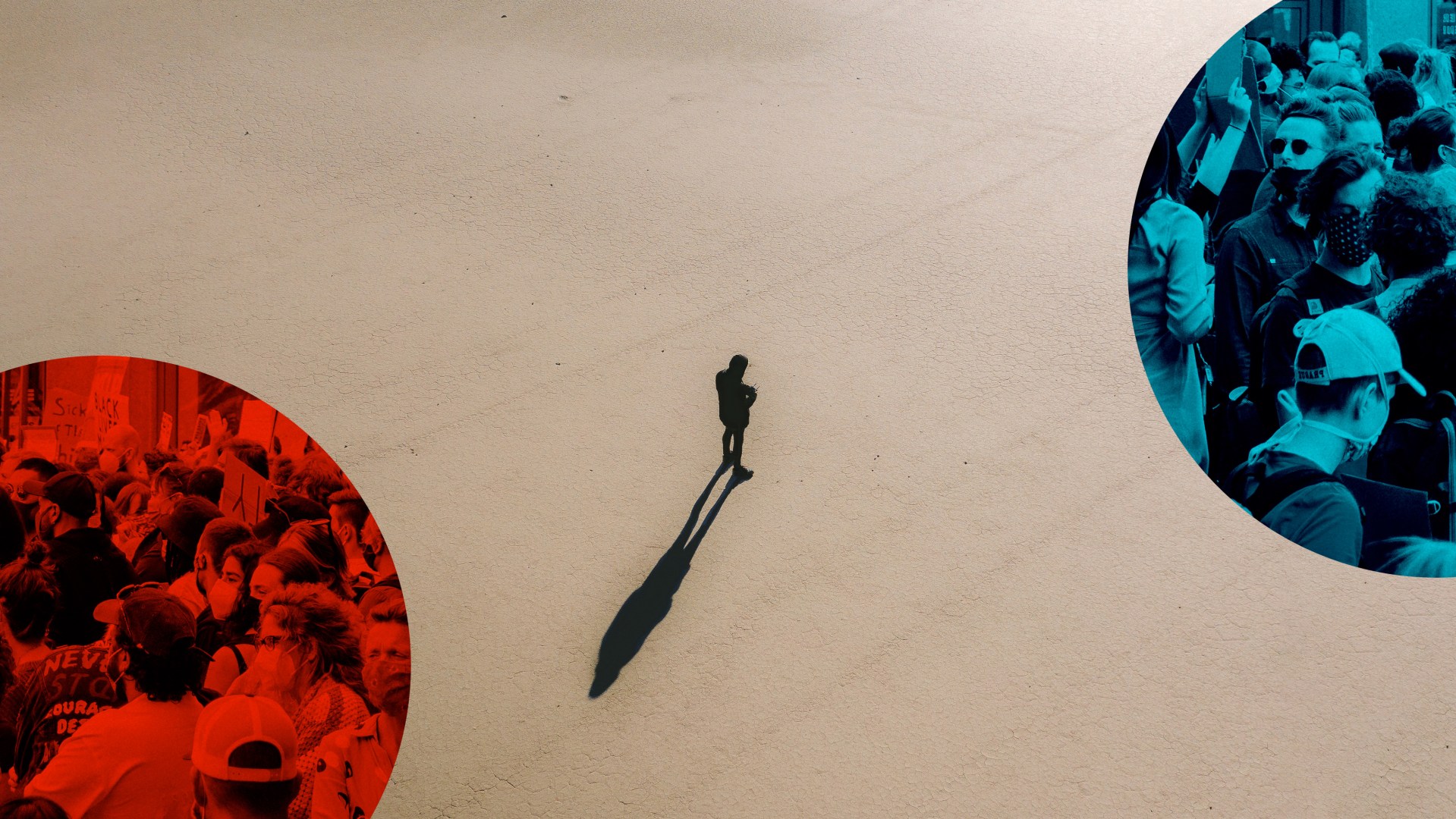“This is awful.”
That’s what a pastor said to me recently about the tribalization he sees not just in the culture but in his own church. The angriest debates are not over whether a claim is true, but over what side a person has pledged allegiance to by affirming its truth. Red state or blue state? Cracker Barrel or Whole Foods?
The pastor is right that this is a lamentable state. But it’s not “awful.” Not awful enough, anyway.
The Christian church learned in the first century that fragmentation was a question of sorting before it was a question of splitting. In saying “I am of Paul” and “I am of Cephas,” one was swearing a loyalty and merging one’s own conscience into a herd defined by something short of Christ (1 Cor. 1:10–17, NKJV).
Biologists and psychologists would find that unsurprising. Many would say that humans evolved with a need to differentiate between “in group” and “out group,” the familiar and the strange. It’s “natural,” some would tell us, to ask, “Who is my neighbor?” (Luke 10:29).
All of us would agree that this sort of hive mind is a necessary function at times. If a fire breaks out in your Sunday morning service, you don’t want a thoughtful discussion about possible means of escape. You want the whole gathering, as one, to suspend their personal judgments and move. The problem that we see right now—ratcheted up to an unprecedented level by social media—is that there seems to be no off switch for the hive mind.
Social psychologists Jonathan Haidt and Dacher Keltner have found that one factor is most important in shifting people away from hive-mind tribalism. This factor works by allowing a person to shut down the self. It is awe.
Haidt and Keltner define awe as an emotion triggered by two experiences: One of them, Haidt describes in The Righteous Mind, is “vastness,” in which “something overwhelms us and makes us feel small.” The other is “accommodation,” in which the trigger is so outside of our normal mental structures that we must change to make room for it.
Human beings are meant to have these moments of self-transcendence. They allow people to contribute to the survival of the group in ways quite different from lining up into warring tribes.
One can see in these moments, Haidt notes, that life is about more than just the seen and the material. This encounter with transcendence, he says, can cause people to be kinder, calmer, and less anxious—almost, one might say, “born again.”
Almost. Haidt suggests you don’t need God to experience awe: Ecstatic collective dancing and psychedelic drugs can be gateways to such an experience. But those examples claim transcendence without actually achieving it. Still, what if Haidt is right that there seems to be a built-in antidote to tribalization in a sense of awe?
Jewish philosopher Leon Kass writes that at the burning bush, Moses experienced something beyond “Egyptian wonder”—curiosity leading to mastery over a subject. In “Hebraic awe,” he writes, there’s both a drawing (Moses is called by name) and a distance (Take off your shoes and come no nearer). In such a moment, Kass argues, we want to approach and to stand back, to hide our face but hold our ground. In this kind of awe, he says, we both feel small and then feel less small, afraid and then able to transcend fear.
Isaiah saw the glory of God, felt his own sinfulness, and then was brought near. John wrote that the glory the prophet saw was not an abstraction but a person (John 12:41). This awe showed Isaiah the sin of his self-striving and responded to it with atonement, showed him the inadequacy of his tribal identity and replaced it with genuine communion (Isa. 6:1–13).
Maybe the reason we as Christians find our loyalties in tribal factions and ideologies is because we’ve lost that sense of worshipful awe before a God who is not a set of doctrines or a motivation for institutional survival or a national deity or a political mascot. Maybe our clamoring for those sorts of hive minds is because we’ve become bored—unsurprised by joy, un-amazed by grace.
Maybe those of us seething with resentment toward those who make us feel small haven’t yet felt small enough. Maybe for the tribalism of our time, only a more awe-full church will do.
Russell Moore is Christianity Today’s chair of theology.













